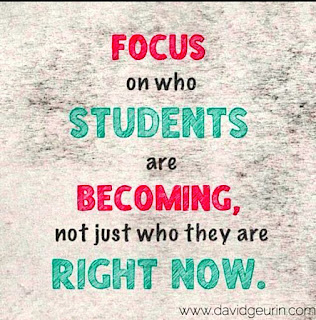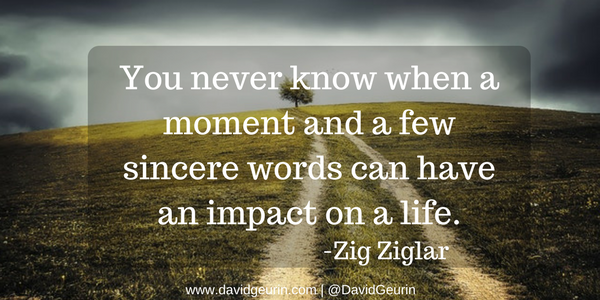I'm currently reading The Power of Habit: Why We Do What We Do In Life and Business by Charles Duhigg. I couldn't put it down. These ideas are immediately relevant in trying to help myself and others (teachers and students) build capacity to do more and be more.
One profound takeaway for me is how small changes can lead to bigger changes and superior results. Habits are powerful, even ones that may not seem directly related to a particular outcome.
Alcoa
When Paul O'Neil was named CEO of metals producer Alcoa, the company had been underperforming for years. Many questioned his selection for the top position, but after he spoke to shareholders the first time, he was especially under the microscope. You see, he didn't talk about raising profits. He spoke of creating the safest company possible.
He created an intense focus on worker safety, something he felt everyone in the company could get behind. The company had problems with quality and efficiency, but he didn't focus on on that. He made worker safety the driving concern.
But as his safety measures were implemented, quality and efficiency improved across the board, and soon Alcoa was turning profits that were extraordinary. Even though the company's energy wasn't focused squarely on profit-driving levers, those levers were subsequently effected by the focus on safety.
Impact of Exercise
Researchers have found over the decades that people who introduce consistent exercise routines into their lifestyle, also seem to improve other patterns in their life, often unknowingly.
They also improve their eating habits, smoke less, show more patience with others, and even use their credit cards less. It's almost like the consistent, positive change spills over into other parts of life. As exercise improved, so did other aspects of life, and it even happened unknowingly for participants. They weren't aware of the improvements they were making.
These types of habits, that tend to have the spill over effect, are referred to as keystone habits. They are the key to improving in a whole variety of ways.
Weight Loss
The conventional advice for weight loss was to join a gym, exercise more, follow restrictive low-calorie diets, and take the stairs instead of the elevator. Of course, those actions are helpful if you stick with them but most weight loss patients would not. They would follow them for a few weeks but slip back into old patters.
But when researchers asked 1600 obesity patients to make one simple change and keep a journal of what they ate for an entire day at least one day a week, the results were extraordinary. The people who kept the journal lost twice as much weight as those that did not and other behaviors changed, like exercise and diet, even though the researchers didn't make any suggestions to the patients about exercise or diet. They simply asked them to log what they were eating. It seems the journal was a keystone habit.
Other Keystone Habits
Families who eat together on average have children who make better grades, have more emotional stability, and demonstrate more confidence.
Making your bed every morning has been shown to correlate to increased productivity, sticking to a budget, and better overall sense of well-being.
These keystone habits establish small wins in a person's (or organization's) life that can translate to bigger wins.
"Small wins are a steady application of a small advantage," one Cornell professor wrote in 1984. "Once a small win has been accomplished, forces are set in motion that favor another small win." Small wins fuel transformative changes by leveraging tiny advantages into patterns that convince people that bigger achievements are within reach.
Implications for Educators
Are we taking advantage of small wins? Are we leveraging keystone habits in schools?
Often when thinking about improving student achievement, we simply double down on math or reading. We implement more interventions. We increase the rigor, give more homework, or take away electives in favor of core instruction. And maybe we do increase performance just a little.
But at what cost? Is it worth it if we are sacrificing the joy of learning?
And, are we overlooking other levers that might yield better results and produce stronger learners?
What if we looked at other factors that might produce small wins and set some goals around these areas? I was part of a conversation with some local school leaders who were discussing goals for the year.
One of the schools was focusing on getting more kids involved in school activities. Involvement in sports, clubs, fine arts, etc. has shown correlation to student achievement in studies. If we can get a small win in this area, it's good for kids regardless, and perhaps it will spill over to classroom learning.
What if you worked on having extraordinary greetings and made that an important habit in your school?
What if everyone made it a point to call students by name, make eye contact, and smile more?
What if you focused on proximity in the classroom? Moving from the front of the room, sitting by students, being with students instead of in front of them.
I'm going to continue to reflect on how we can leverage the power of small wins in our school. What do you think about your classroom or school?
Have you seen examples of the power of small wins? What do you see as possible keystone habits educators could develop in students?
Leave a comment or respond on Facebook or Twitter. I'm curious what's on your mind.


















